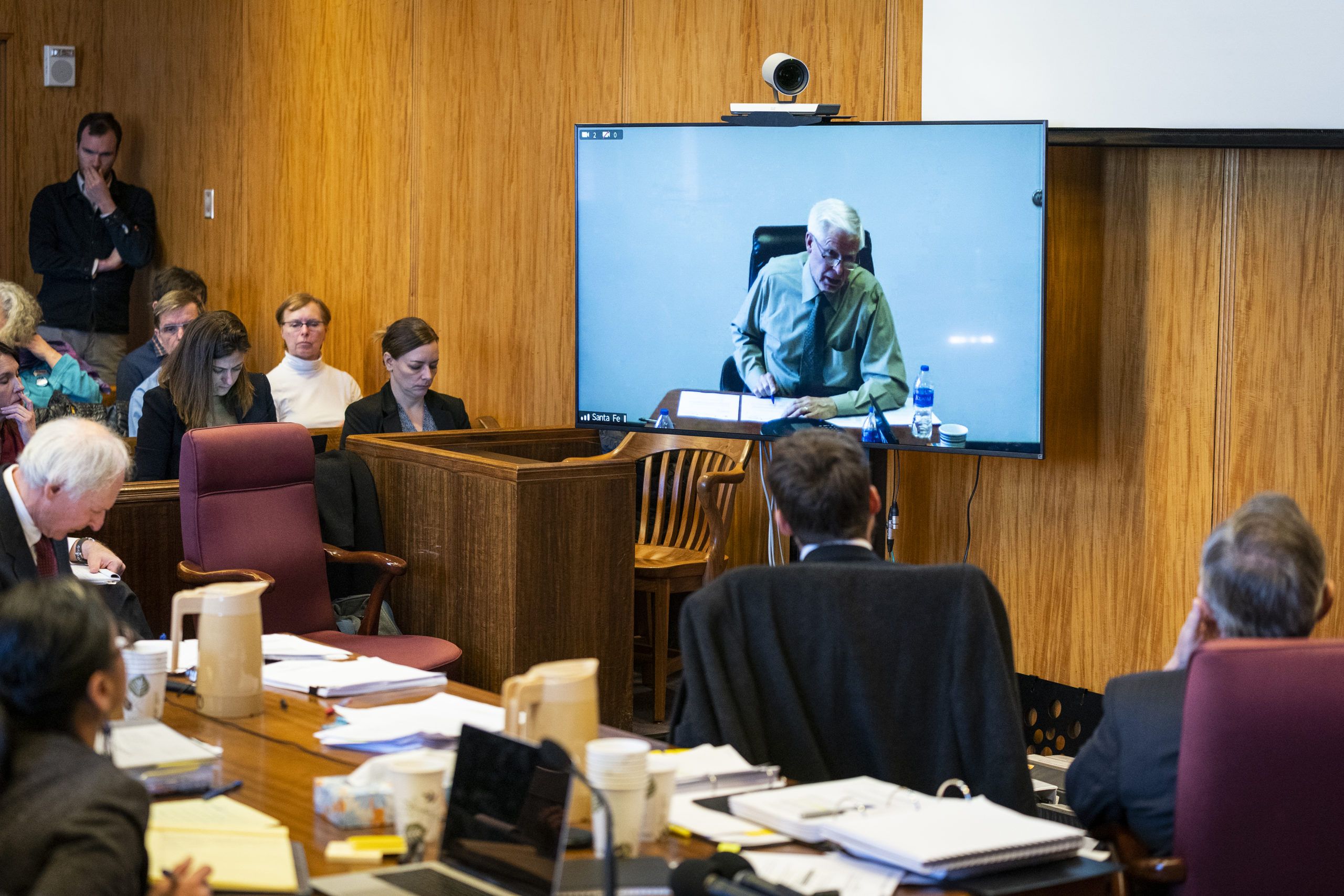PolyMet Water Pollution Permit: Appeal
What is the PolyMet water pollution permit appeal?
The Court’s decision is usually based on the documents in the administrative record, along with briefs and an oral argument. In the PolyMet water pollution permit case, WaterLegacy’s evidence of “irregularities in procedure” has allowed the courts to review additional documents withheld by the MPCA and suppressed by the U.S. Environmental Protection Agency (EPA) at MPCA’s request.

Photo via Marshall Helmburger of The Timberjay
What is the current status?
WaterLegacy filed an appeal of MPCA’s decision issuing the PolyMet NPDES/SDS water pollution permit on January 22, 2019, along with a statement of the grounds for the appeal.
No decision has been made by the Court of Appeals on the merits of the claims made by WaterLegacy and our allies.
In a process that has only been used once before in Minnesota history, the PolyMet water pollution permit cases were transferred to the district court for a hearing to determine “irregularities in procedure” in MPCA’s issuance of the PolyMet permit. The water pollution permit was suspended six weeks later, so no construction can begin related to the permit.
The district court judge, Judge Guthmann, conducted an evidentiary hearing from January 21-19, 2020. On September 3, 2020, District Court Judge John Guthmann issued his Findings, Conclusions and Order. Judge Guthmann adopted as findings many facts proposed by WaterLegacy, including:
- MPCA knew EPA intended to send written comments on the deficiencies of the draft PolyMet permit (Comments).
- MPCA asked the EPA to withhold its Comments.
- When EPA professional staff did not agree to withhold their comments, MPCA Commissioner John Linc Stine and Assistant Commissioner Shannon Lotthammer lobbied Region 5 political appointees who blocked EPA’s Comments.
- MPCA’s request to EPA was completely unprecedented.
- Although EPA read its Comments to MPCA on the phone, neither MPCA’s records from this phone conference nor any MPCA responses to EPA’s Comments were included in the public record.
Judge Guthmann also found – for the first time in Minnesota history – that MPCA’s actions in issuing the PolyMet water pollution permit included “irregularities in procedure” in destroying notes and official records.
WaterLegacy appealed from the District Court transfer case order on November 2, 2020, arguing that MPCA’s actions to prevent EPA from sending its Comments were also irregularities in procedure. The Minnesota Court of Appeals will decide this appeal when it considers whether the PolyMet water pollution permit was improperly issued.

Judge John Guthmann, presiding over hearing on PolyMet permit procedural irregularities. Photo by Leila Navidi/Star Tribune via Getty Images.
Understanding the Court Process
Transfer to District Court
Suspension of the Permit
District Court Orders and Hearings
Ramsey County District Court proceedings began before Judge Guthmann on August 7, 2019. Judge Guthmann allowed limited questioning of MPCA and additional discovery to find documents missing from the administrative record.
Even though Judge Guthmann ordered a forensic search to find documents not produced by MPCA, the “smoking gun” email leaked by the EPA union and secured in its complete form by WaterLegacy under the Freedom of Information Act (FOIA), were never found. During the evidentiary hearing in January 2020, former Assistant Commissioner Shannon Lotthammer admitted she’d deleted the email.
The Star Tribune reported on Lotthammer’s Jan. 23, 2020 testimony,
On Thursday, the reason became clear. Former Minnesota Pollution Control Agency Assistant Commissioner Shannon Lotthammer, the e-mail’s author, testified that she had deleted it.
“I deleted the e-mail knowing that, at least to the best of my knowledge, this was the only e-mail that contained the request,” she testified Thursday.

The evidentiary hearing featured lead witness Kevin Pierard, who was EPA Region 5 NPDES Program Chief throughout the PolyMet water pollution permit process. Pierard, who is now the Chief of New Mexico’s Hazardous Waste Bureau, testified remotely on video.
MinnPost summarized points made by Pierard at the hearing on MPCA procedural irregularities:
But in early March, Pierard said MPCA staff asked him “if there was any wiggle room” to delay the EPA’s comments. Pierard testified the request was odd. He could not recall ever getting a similar request on a draft NPDES permit . . . he saw delaying EPA comments for a revised permit as a departure from normal procedure. “That just doesn’t make any sense that we would do that,” he told the court via livestream from Santa Fe, New Mexico. “It’s not our practice and it wouldn’t speed up the process which I think they were concerned about. It actually slows it down.”
Read (Proposed) Findings of Fact, Conclusions of Law, and Order for the evidence of MPCA irregular procedures in issuing the PolyMet NPDES/SDS water pollution permit.
